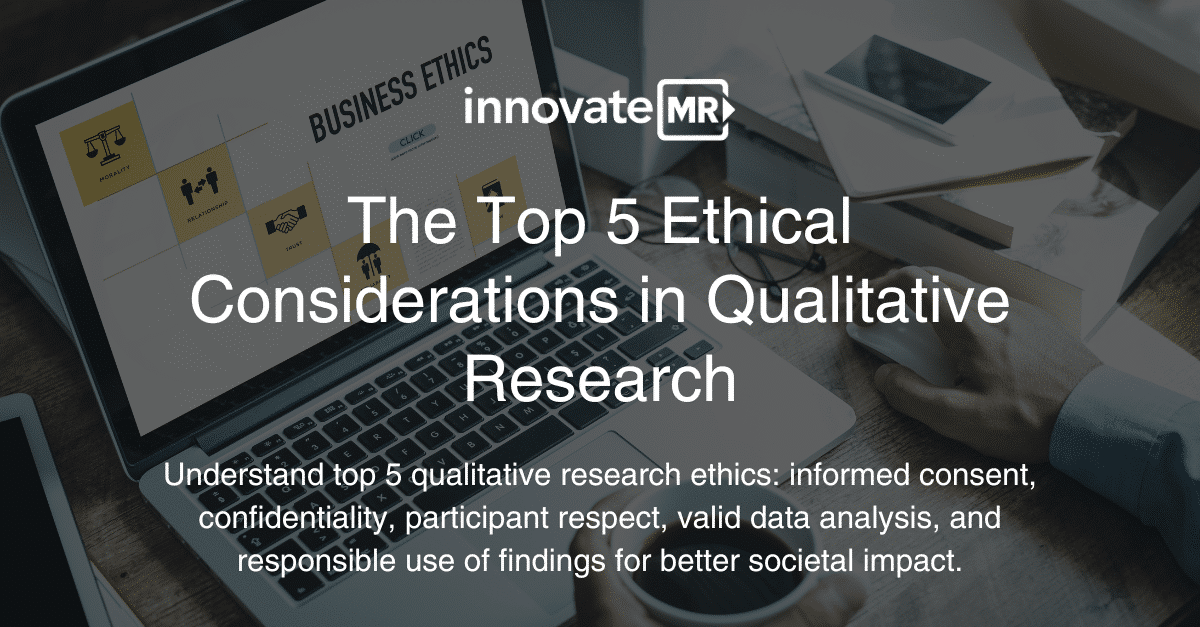
Introduction: Why Ethics Matter in Qualitative Research
Qualitative research is a powerful method for uncovering the depth and complexity of human behavior, experiences, and perspectives. It is widely applied across sociology, psychology, education, healthcare, and business. Unlike quantitative approaches that focus on numbers, qualitative research provides rich, detailed insights into human interactions, emotions, and motivations.
However, with this power comes responsibility. Ethical considerations are central to ensuring that participants’ rights, dignity, and well-being are protected. Researchers must balance the pursuit of knowledge with the duty to respect individuals and communities.
This article highlights the five core ethical principles in qualitative research:
- Responsible Use of Findings
- Informed Consent
- Confidentiality and Privacy
- Respect for Participants
- Ethical Data Collection and Analysis
1. Informed Consent in Qualitative Research
Why it matters: Informed consent is the cornerstone of ethical research. It ensures that participants understand the purpose of the study, the procedures involved, any potential risks, and how their data will be used.
Best practices for informed consent:
- Make information clear and accessible (avoid jargon, use visuals or plain language).
- Ensure participants know their involvement is voluntary and that they can withdraw at any time without penalty.
- Pay special attention to vulnerable populations (children, elderly individuals, or those with cognitive impairments), obtaining legal guardian consent when required.
Ongoing communication is key. Consent should not be treated as a single form to sign but as a continuous dialogue throughout the study.
2. Protecting Confidentiality and Privacy
Why it matters: Participants often share deeply personal information, trusting that researchers will protect their identities. Breaches of confidentiality can cause harm, stigma, or even legal consequences.
How to maintain confidentiality:
- Anonymize data with pseudonyms or unique identifiers.
- Use secure, encrypted storage for digital files.
- Limit access to raw data only to authorized researchers.
Confidentiality challenges can arise in small or close-knit communities where participants may still be identifiable despite anonymization. Researchers must take extra care when presenting data, ensuring no unintended harm or exposure occurs.
3. Respect for Participants
Why it matters: Respect goes beyond formal ethics; it’s about valuing participants’ voices, perspectives, and cultural contexts. Researchers must approach participants with humility, cultural sensitivity, and fairness.
Ways to show respect:
- Learn about the cultural backgrounds and norms of participants.
- Avoid imposing personal biases or assumptions.
- Recognize power dynamics between researcher and participant— and create a safe space for honest dialogue.
A respectful researcher fosters trust, which in turn leads to richer, more authentic data.
4. Ethical Data Collection and Analysis
Why it matters: The validity and credibility of qualitative research depend on transparent, fair, and unbiased data collection and analysis.
Best practices for data collection:
- Use open-ended questions to encourage genuine responses.
- Pilot-test interview guides to minimize bias.
- Allow participants to review transcripts or summaries to ensure accuracy.
Best practices for data analysis:
- Report findings honestly, without cherry-picking data to fit a hypothesis.
- Present a balanced view that reflects the full complexity of participants’ experiences.
- Clearly state the limitations of the research to avoid misinterpretation.
Ethical analysis ensures findings are credible, meaningful, and respectful of the participants’ contributions.
5. Responsible Use of Research Findings
Why it matters: Findings must be used in ways that benefit society without causing harm to participants or their communities. Misuse or misinterpretation of data can lead to stigmatization or reinforce stereotypes.
How to use findings ethically:
- Share results in an accessible language with participants, stakeholders, and the public.
- Collaborate with communities when possible to determine the best way to present findings.
- Avoid overgeneralizations; contextualize results within the specific population studied.
Researchers must balance dissemination with responsibility, ensuring findings are applied constructively and sensitively.
Conclusion: Building Trust Through Ethical Research
Ethical considerations are not optional checkboxes in qualitative research— they are essential to ensuring integrity, trust, and impact. By prioritizing informed consent, confidentiality, respect for participants, fair data practices, and responsible use of findings, researchers uphold the dignity of participants while producing credible and socially valuable results.
Ultimately, ethics in qualitative research are about more than compliance; they are about honoring human stories and ensuring that research contributes positively to the world.
FAQs
1. What are the core ethical principles in qualitative research? The five core ethical principles are Informed Consent (ensuring participants understand the study), Confidentiality and Privacy (protecting participant identities), Respect for Participants (valuing their perspectives and well-being), Ethical Data Collection and Analysis (maintaining fairness), and Responsible Use of Findings (using results to benefit society without causing harm).
2. Why is informed consent so important? Informed consent is the cornerstone of ethical research because it ensures participants fully understand the study’s purpose, procedures, potential risks, and how their data will be used. It confirms their involvement is voluntary and that they can withdraw at any time, protecting their rights and dignity.
3. How do researchers protect a participant’s confidentiality? Researchers protect confidentiality by anonymizing data with pseudonyms, using secure, encrypted storage for digital files, and limiting access to raw data to authorized personnel only. This is vital for protecting participants from potential harm or stigma.
4. What does “respect for participants” mean in a research context? Respect for participants means valuing their voices, perspectives, and cultural contexts. It requires researchers to act with humility and cultural sensitivity, avoid imposing personal biases, and acknowledge the power dynamics in the researcher-participant relationship to create a safe space for honest dialogue.
5. How can researchers ensure their findings are used responsibly? To use findings responsibly, researchers must share results in an accessible way, avoid overgeneralizations, and collaborate with communities when possible. The primary goal is to ensure the research is applied constructively and sensitively, benefiting society without causing harm to participants or reinforcing stereotypes.
About InnovateMR – InnovateMR is a full-service sampling and ResTech company that delivers faster, quality insights from business and consumer audiences utilizing cutting-edge technologies to support agile research. As industry pioneers, InnovateMR provides world-class end-to-end survey programming, targeted international sampling, qualitative and quantitative insights, and customized consultation services to support informed, data-driven strategies, and identify growth opportunities. Known for their celebrated status in customer service and results, InnovateMR combines boutique-level service with extensive global reach to achieve partner success.


